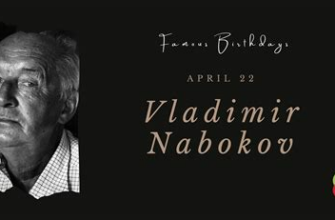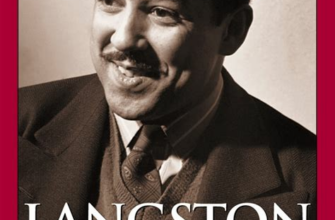In the vast tapestry of literary history, certain authors stand out as beacons of brilliance, their words transcending time and touching the souls of generations. E.M. Forster is undoubtedly one such luminary, his literary prowess leaving an indelible mark on the literary landscape. Through his poignant narratives and profound insights, Forster's works embody a captivating blend of human connection, social criticism, and introspection.
Like a skilled weaver, Forster threads together the fabric of his characters' lives, skillfully delving into the complexities of their inner worlds. His writing, characterized by an unwavering eye for detail and a sensitivity to the human condition, lays bare the intricacies of relationships, the struggles of societal conventions, and the profound effects of self-discovery. By interweaving introspection with societal critique, Forster imparts wisdom and invites readers to explore the depths of their own existence.
Beyond his exquisite storytelling abilities, Forster's works are a testament to his unwavering commitment to social justice and equality. Through his writings, he fearlessly examines the prevailing norms and prejudices of society, shedding light on the flaws that hinder human progress. With a deft and skillful hand, Forster dismantles the barriers of class, gender, and sexuality, evoking empathy and urging readers to question the oppressive structures of their own lives.
At the heart of Forster's writing lies a profound belief in the power of human connection. His characters, born from the depths of his imagination, are intricately woven together by the invisible threads of love, friendship, and compassion. With a compelling blend of vulnerability and strength, Forster inspires readers to cherish and celebrate the bonds that unite us all. Through his evocative prose, he illuminates the shared vulnerabilities and joys that make us human, reminding us of our intrinsic interconnectedness.
The Early Life of E.M. Forster: From Cambridge University to Literary Aspirations

In this section, we delve into the formative years of one of the most celebrated novelists of the twentieth century, exploring the pivotal moments and influential experiences that shaped the emerging talent of E.M. Forster. From his time at the prestigious Cambridge University to his profound literary ambitions, we uncover the early life of this remarkable writer.
During his undergraduate years at Cambridge, Forster's intellectual curiosity and passion for literature blossomed, propelling him towards a career in writing. Immersed in the vibrant academic environment, he honed his creative skills and developed a critical eye for analyzing the human condition. His time at the university provided a fertile ground for him to explore diverse literary genres and philosophical ideas, nurturing his burgeoning literary aspirations.
As Forster navigated the challenges of university life, he found inspiration in the works of his contemporaries and literary predecessors. Engrossed in the innovative modernist movement, he embraced its experimental techniques and unconventional narrative structures. This exposure laid the groundwork for Forster's distinctive storytelling style, characterized by his profound exploration of human relationships, societal constraints, and the complexities of love.
The impact of Forster's formative years at Cambridge extended beyond his academic pursuits. It was during this time that he established lifelong friendships and fostered connections with like-minded individuals who shared his passion for literature and social change. These relationships played a crucial role in shaping his worldview and providing him with the support and encouragement necessary to embark on his literary career.
From his humble beginnings at Cambridge University to his unwavering commitment to literary excellence, E.M. Forster's early life serves as a testament to the transformative power of education, intellectual exploration, and the pursuit of creative aspirations. These foundational years laid the groundwork for the brilliance that would define his future literary endeavors, making him an icon of twentieth-century literature.
M. Forster's Writing Style: Exploring the Themes and Techniques in His Works
In this section, we delve into the distinctive writing style of one of literature's most renowned authors, M. Forster. Through a careful examination of his works, we uncover the recurring themes and the unique techniques that shaped his narratives.
Themes: M. Forster's works are a testament to his deep exploration of human relationships, societal norms, and the complexities of love. His writings often revolve around the clash between personal desires and social conventions, tackling topics such as class differences, gender roles, and the impact of cultural attitudes on individuals.
Using his keen observational skills, Forster delves into the depths of his characters' emotions, unveiling their inner struggles and highlighting the universal themes of connection, longing, and self-discovery. Through his works, we are transported to different periods and settings, immersing ourselves in the multi-layered narratives that brilliantly capture the essence of the human experience.
Techniques: Forster masterfully utilizes various literary techniques to enhance his storytelling. Notably, he employs the technique of "show, don't tell," allowing readers to engage with the story by drawing their own conclusions through subtle hints and descriptive imagery.
Furthermore, Forster's use of symbolism adds depth to his narratives, offering readers multiple layers of interpretation. Through symbols, objects, and settings, Forster weaves intricate connections, illustrating complex ideas and exploring the deeper meaning behind his characters' actions and motivations.
In addition, Forster employs the technique of psychological realism, peeling back the layers of his characters' minds and providing a profound insight into their thoughts and motivations. This approach creates a rich psychological depth, making the characters feel real and relatable.
Moreover, Forster's writing style is characterized by a blend of humor and irony, adding an engaging and thought-provoking tone to his works. Through witty dialogue and satirical observations, he challenges traditional societal norms and sheds light on the inherent contradictions and absurdities of human behavior.
Exploring M. Forster's writing style allows us to appreciate his timeless themes and the masterful techniques that have solidified his status as a literary icon. Through his works, readers are invited to contemplate and analyze the intricacies of human existence, all while being captivated by his captivating storytelling.
M. Forster's Legacy: Exploring the Influence of His Novels on Literature and Society

In this section, we will delve into the profound impact of E.M. Forster's novels on the realm of literature and society as a whole. By examining his body of work, we can gain a deeper understanding of the themes, ideas, and messages that continue to resonate with readers around the globe.
Forster's novels, with their profound insights and rich narratives, have left an indelible mark on the literary landscape. A closer examination reveals the lasting impressions they have made on subsequent generations of writers. Through innovative storytelling techniques and nuanced character development, Forster shed light on the complexities of human relationships and social dynamics. His exploration of themes such as class divisions, gender roles, and cultural clashes has paved the way for important discussions and reflections in both literature and society.
One of the defining aspects of Forster's literary legacy is his ability to transcend the boundaries of time and space. His works, even when set in specific historical periods, speak to universal human experiences. By capturing the intricacies of human emotions and the universal struggles of the human condition, Forster's novels have the power to resonate with readers from diverse backgrounds and cultures.
- Through his masterpiece "A Passage to India," Forster examined the colonial relationship between India and Britain, raising questions about identity, culture, and power dynamics. The novel challenged prevailing notions of imperialism and encouraged readers to critically evaluate the impact of colonization.
- "Howard's End" explores the complexities of social class and the changing landscape of England in the early 20th century. With its nuanced portrayal of the clash between the old and the new, Forster's novel prompts readers to reflect on the societal shifts and the evolving dynamics of the time.
- In "A Room with a View," Forster delves into themes of love, self-discovery, and the conflict between social conventions and inner desires. Through the journey of its protagonist, Lucy Honeychurch, the novel prompts readers to question societal expectations and the pursuit of personal fulfillment.
By examining the influence of Forster's novels on literature and society, we gain a greater appreciation for his contributions to the artistic and intellectual world. His legacy is one marked by thought-provoking narratives, social commentary, and a profound understanding of the human experience. As his works continue to be read and analyzed, E.M. Forster's impact on literature and society remains as relevant and powerful today as it was during his lifetime.
The Impact of Travel on E.M. Forster's Literary Works: From Italy to India
Exploring diverse landscapes and immersing oneself in different cultures have long been sources of inspiration for many writers. E.M. Forster, the revered British author, was no exception. His journeys to Italy and India played a pivotal role in shaping the themes and narratives found in his celebrated novels and short stories.
A Fascination with Italy: Forster's travels throughout Italy sparked a deep fascination with the country's rich history, picturesque landscapes, and multifaceted social dynamics. His experiences in Italy led him to explore themes of class struggle, social decorum, and the clash between tradition and modernity in his works. | Indelible Impressions of India: However, it was Forster's extensive travels to India that truly left an indelible mark on his literary career. The vibrant and diverse culture of India became the canvas upon which Forster painted his exploration of colonialism, cultural identity, and the complexities of human relationships across cultural boundaries. |
A Merging of Cultures: Through his experiences in both countries, Forster developed a unique perspective that allowed him to delve into the intricate connections between the East and West. His works often depict the collision of Western ideologies with the spiritual wisdom and traditions of the East, showcasing the potential for mutual understanding and the challenges that arise. | Breaking Boundaries: Forster's travel experiences pushed the boundaries of societal norms and conventional thinking, enabling him to challenge prevailing ideologies and stereotypes in his writing. By contrasting different cultural perspectives, he shed light on the limitations imposed by societal structures and called for greater tolerance and empathy. |
By examining the profound influence of Forster's travels on his writing, we gain a deeper understanding of the author's commitment to exploring themes of identity, human connection, and the barriers that divide us. Through his powerful storytelling, Forster continues to inspire readers to question and challenge the limitations placed on our understanding of the world.
Unveiling E.M. Forster's Private Life: Love, Relationships, and His Hidden Homosexuality

Exploring the behind-the-scenes of E.M. Forster's personal life illuminates the complexity of his romantic relationships and sheds light on a significant aspect of his identity that was concealed during his time. Delving into his intimate connections and the challenges he faced as a gay man in a society hostile to homosexuality reveals a rich tapestry of love, emotions, and self-discovery.
- Love Beyond Boundaries: Forster's romantic inclinations transcended societal norms, challenging conventional notions of love and relationships. His encounters sought connections that defied heteronormative expectations, forging deep emotional bonds that were passionately unconventional.
- Hidden Desires and Forbidden Longings: In a time when same-sex relationships were deemed illicit, Forster's exploration of his sexuality remained largely hidden. He struggled with the conflict between societal expectations and his own desires, leading to a lifelong battle between authenticity and acceptance.
- A Circle of Intimacy: Forster found solace within a group of like-minded individuals who shared his unconventional desires and experiences. This circle of intimacy allowed for the development of deep and meaningful connections that provided support and understanding in a world that often rejected their identities.
- New Perspectives on Love and Relationships: Forster's personal journey challenged traditional notions of love and brought to light the universal experiences of longing, desire, and emotional connection that transcended gender and sexual orientation. His intimate relationships offered a fresh perspective on the complexities of human connections.
- A Posthumous Revelation: It wasn't until after Forster's death that his hidden homosexuality was fully acknowledged. His private diaries and letters uncovered a world of unexpressed emotions and desires, unraveling the intricacies of his relationships and providing a greater understanding of the man behind the celebrated novelist.
By unraveling the intricacies of E.M. Forster's private life, we gain a deeper appreciation for his literary works, as well as a broader understanding of the challenges faced by individuals who struggled to embrace and express their true selves in a world that often demanded conformity.
FAQ
How did E.M. Forster gain recognition as a celebrated novelist?
E.M. Forster gained recognition as a celebrated novelist through his masterful storytelling and keen observations of society. His works, such as "A Room with a View" and "Howards End," captivated readers with their themes of love, class struggle, and personal freedom.
What were some of the major themes in E.M. Forster's novels?
Some major themes in E.M. Forster's novels include love, social class, personal freedom, and the conflict between tradition and modernity. These themes are explored in works like "A Passage to India" and "Maurice," where Forster delves into the complexities of human relationships and the impact of societal norms.
How would you describe E.M. Forster's writing style?
E.M. Forster's writing style can be described as introspective and thought-provoking. He excelled in creating rich and nuanced characters who grapple with their own desires and the expectations of society. His prose is elegant, yet accessible, allowing readers to deeply engage with the themes and conflicts within his novels.
What was the historical and social context in which E.M. Forster wrote?
E.M. Forster wrote during a time of significant social change and upheaval. He lived through both World Wars and witnessed the shifting dynamics of society, particularly in terms of class structures and the fight for personal freedom. This context greatly influenced his exploration of themes like social inequality and the clash between colonial powers and native populations.
What impact did E.M. Forster's novels have on literature and society?
E.M. Forster's novels had a profound impact on both literature and society. His works challenged societal norms and prejudices, advocating for personal freedom and acceptance of diverse perspectives. Forster's exploration of themes like love and sexuality, often considered taboo during his time, helped pave the way for more open discussions and acceptance in literature and society at large.
What are the major works of E.M. Forster?
E.M. Forster is known for his novels such as "A Room with a View", "Howards End", and "A Passage to India", which are considered his major works.
Can you provide some insights into E.M. Forster's writing style?
E.M. Forster's writing style is characterized by its elegant prose, rich character development, and exploration of social themes. He often delves into the complexities of human relationships and highlights the clash between individual desires and societal expectations.



